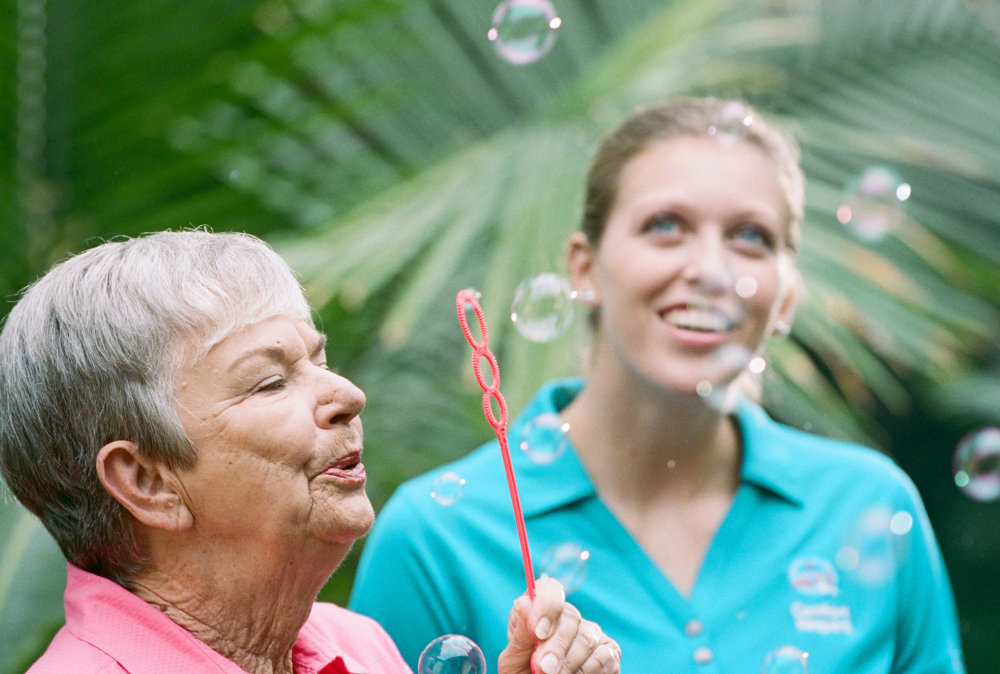The importance of exercise is well researched. Keeping active and healthy is proven to have a positive impact on our overall mental and physical health and well-being. It used to be believed that as we age, we should take it easy with regard to exercise. However, we now realise the benefits and understand that keeping fit and healthy is even more important as we get older.
In 2016, national gym chain Nuffield Health, published a report stating those aged 70 -79 are the group most frequently using gyms, as the older generation is beginning to embrace the benefits of a more active lifestyle.
Guidance from the NHS states that those over the age of 65 should:
- Aim to be physically active every day – any activity is better than none.
- Activities should focus on improving strength, balance and flexibility and be undertaken at least two days a week.
- Complete at least 150 minutes of moderate intensity activity a week, or 75 minutes of vigorous intensity activity if you are already an active person, or a combination of both if possible.
- Reduce time spent lying down and break up long periods of inactivity with some activity, even if it is small.
Activities can range from a walk in the park or a simple exercise routine at home, but whatever the activity, it is evident that increased levels of fitness can improve health, confidence, and coordination – all of which have clear long term health benefits as we got older. Being active at any age stimulates mood and self-esteem, ensuring our overall emotional and psychological well-being is protected.
Here are six reasons for the older generation to be as active as possible.
Falls prevention
As we get older our muscle strength can inevitably weaken, particularly if we are living with other health conditions that affect our mobility. Through exercise, or even small amounts of physical activity, we can improve muscle strength and bone density, significantly reducing the risk of falling, as well as improving overall balance. According to the World Health Organisation (WHO) those that partake in regular exercise can reduce the risk of having a hip fracture by a staggering 40%.
Improved bone density
Weight bearing exercises can help increase bone strength, which can reduce the risk of developing osteoporosis, which can result in bone fractures. The National Osteoporosis Society has found that one in two women and one in five men will break a bone due to osteoporosis. Breaking or fracturing a bone can be incredibly difficult to recover quickly from, especially as we get older, and can result in further inactivity, which in turn can impact overall health.
Reducing the risk of getting dementia
Many international studies have found that those who keep themselves active and regularly exercise in their later years are far less likely to develop dementia.
Have more independence and confidence
Exercising in later life leads to improvements in functional reach and balance, which reduces the fear of falling. With more confidence in their abilities, older people are then better able to make clearer judgements about what they can and cannot achieve.
Reducing the risk of a heart attack or stroke
It has been proven that frequent cardiovascular exercises, such as cycling, a paced walk or even domestic tasks around the house can boost overall health, as they increase heart rate and therefore blood flow to the heart.
Socialise and meet people
Many people in the older generation can experience feelings of isolation and so getting fit and being active can be a great way to get out and meet new people who may be on the same health journey. There are many clubs and activities available that are purely focused on enabling older people to enjoy fitness with each other in a safe and fun way.
We are here to take your call and will provide impartial support and guidance. Contact our friendly care experts today on 0808 239 1525 to discuss your home care needs.

